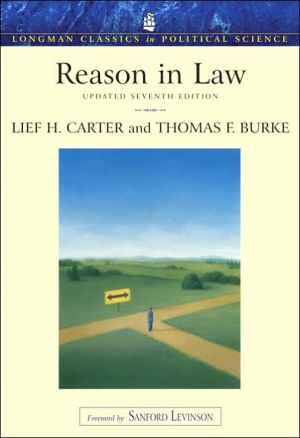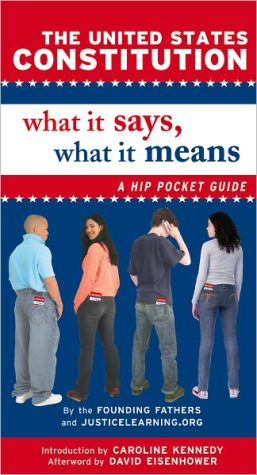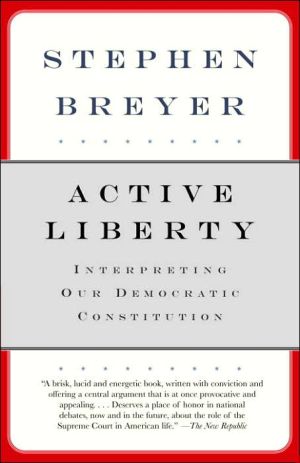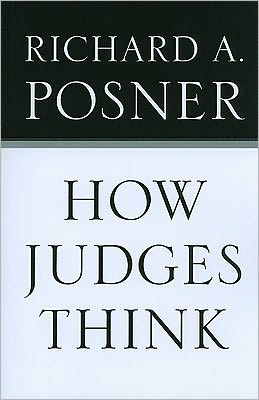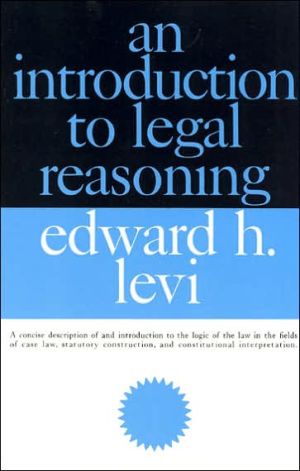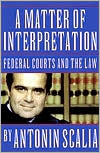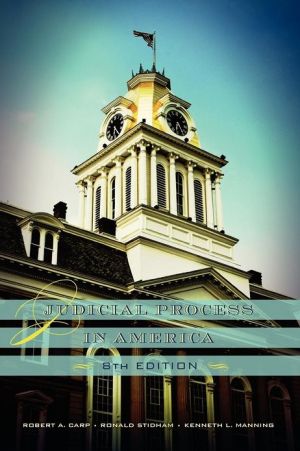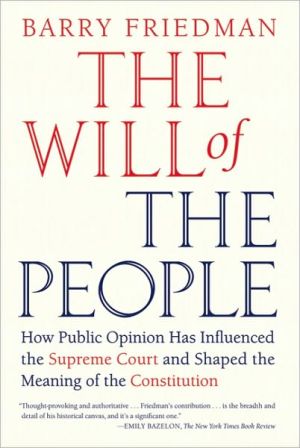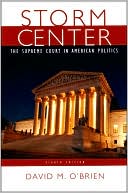Reason in Law Update
Reason in Law examines the intersection of law and politics: legal reasoning. It teaches students how to examine judicial decisions, encouraging them to become “thoughtful judges of judging.” Using cases ripped from the headlines—such as the Alabama federal courthouse “Ten Commandments” case, Ashcroft v. Oregon, and Lawrence v. Texas—authors Carter and Burke teach through illustrative examples and have assembled a gallery of fascinating cases to engage student interest.\ Ultimately, the text...
Search in google:
Reason in Law examines the intersection of law and politics: legal reasoning. It teaches students how to examine judicial decisions, encouraging them to become “thoughtful judges of judging.” Using cases ripped from the headlines—such as the Alabama federal courthouse “Ten Commandments” case, Ashcroft v. Oregon, and Lawrence v. Texas—authors Carter and Burke teach through illustrative examples and have assembled a gallery of fascinating cases to engage student interest.Ultimately, the text attempts to answer the question: “How can a pluralistic society be ruled legitimately?” If people of differing political allegiances can interpret the same legal text quite differently, how can the rule of law be properly applied?
PrefaceAbout the AuthorsReason in Law1 What Legal Reasoning Is, and Why It MattersAn Overview of Law and PoliticsA Definition of LawA Definition of Legal ReasoningLegal Reasoning Does Not Discover the “One Right Answer.”The Structure of Legal Reasoning.Sources of Official Legal TextsThe Choices That Legal Reasoning ConfrontsIllustrative CaseQuestions about the Case2 Change and Stability in Legal ReasoningSources of Unpredictibility in LawThe Disorderly Conduct of WordsThe Unpredictability of PrecedentsStage One: Reasoning by Example in GeneralStage Two: Examples in LawStage Three: The Three-Step Process of Reasoning by ExampleStage Four: How Reasoning by Example Perpetuates Unpredictability in LawStage Five: An Illustration of Unpredictability in LawStage Six: Reasoning by Example Facilitates Legal ChangeIs Unpredictability in Law Desirable?Vertical and Horizontal Stare Decisis: A Stabilizing and Clarifying Element in Law.Illustrative CasesQuestions about the Cases3 Common LawOrigins of Common LawReasoning by Example in Common LawThe Cherry TreeThe PitThe Diving BoardKeeping the Common-Law Tradition AliveMaking Common Law without Close PrecedentsHorizontal Stare Decisis in Common LawRightly Adhering to Precedent Because the Need for Stability and Reliance is PresentWrongly Adhering to Precedent When Stability Is UnnecessaryThe Common-Law Tradition TodayIllustrative CaseQuestions about the Case4 Statutory InterpretationWhat are Statutes?Four Misguided Approaches to “First Instance” Statutory InterpretationLiteralism: Sticking to the WordsThe Golden RuleCanons of Statutory ConstructionLegislative IntentOther Words in the StatuteThe Expressed Intent of Individual Legislators and Committee ReportsOther Actions, Events, and Decisions in the LegislatureThe Perils of Legislative IntentPurpose: The Key to Wise Statutory InterpretationThe Centrality of Statutory PurposeDetermining Purpose: Words Can HelpDetermining Purpose: The AudienceDetermining Purpose: The Assumption of Legislative Rationality and the Uses of Legislative HistoryIllustrations of Statutory PurposeTwo Easy CasesThe Case of the Lady Jurors, or Why Legislative Intent Does Not Determine Statutory PurposeStatutory Purpose in the Cases of Criminal Commerce: Caminetti, McBoyle, and AlpersA Final ComplicationStare Decisis in Statutory InterpretationMajor League Baseball, Haviland’s Dog and Pony Show, and Government Regulation of BusinessThe Case against Increased Adherence to Precedent in Statutory InterpretationA Summary Statement of the Appropriate Judicial Approach to Statutory InterpretationIllustrative CaseQuestions about the Case5 Interpreting the United States Constitution“The Supreme Law of the Land”Conventional Legal Reasoning in Constitutional InterpretationWords as Channels of MeaningOriginal Intent and PurposeStare (In)DecisisJudicial Review and Democratic TheoryTheories of Judicial Self-RestraintPolitical Constraints on the CourtThe Turn to Individual DignityIllustrative CaseQuestions about the Case6 Law and PoliticsThree Threats to the Rule of LawDemocracyAttacks on Judicial LegitimacyNational CrisesThe Rule of Law as Liberal JustificationA RecapImpartiality and TrustImpartial JudgementThe Value of ImpartialityApplying the TheoryIllustrative CaseAppendix “How Law Differs from Politics: The Case of Terry Schindler Shiavo”Credits Index Index of Cases
